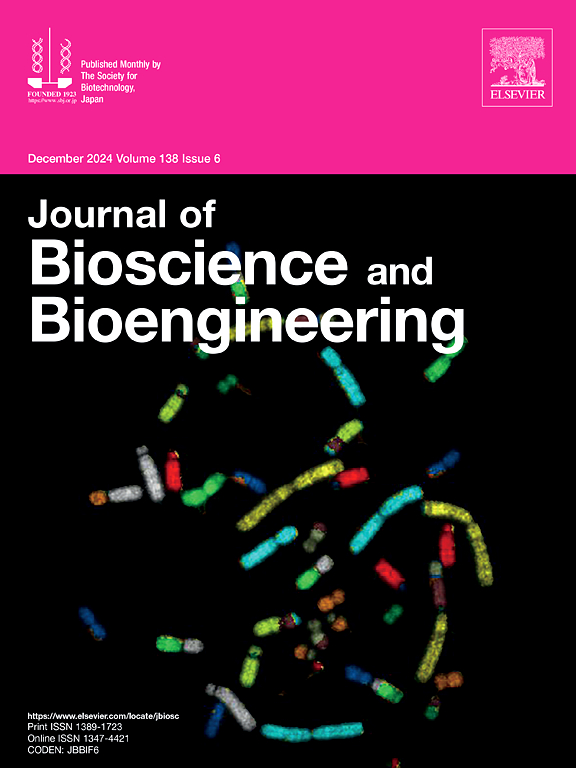Optimization of bacteriophage propagation in high-yield continuous culture (cellstat) meeting the constraints of industrial manufacturing processes
IF 2.3
4区 生物学
Q3 BIOTECHNOLOGY & APPLIED MICROBIOLOGY
引用次数: 0
Abstract
The growing use of bacteriophages in the fields of agriculture, agri-food, veterinary treatments, and medicine involves the quantitative production of these bacteriophages. In this study, we propose a bacteriophage production protocol that can easily be transposed to industry. We used a cellstat production system because the latest studies have shown that it is the most suitable process for the production of phages due to volumetric productivity, safety (limitation of co-evolution), and flexibility (choice of growth rate criteria). Sizing of the assembly used makes it possible to extrapolate the results to industrial production. The production conditions are indicated precisely, which would allow manufacturers to adapt the protocol to their own equipment. We propose experimental conditions in order to obtain a stable Escherichia coli population, qualitatively and over time, and production of high-titer T7 bacteriophages. The optimized production conditions (yield, cost and simplicity of the process) are: a buffered peptone water medium concentration of 11 g L−1 and a dilution rate of 1.6 h−1. Under these conditions, we obtained a production of 7.35×1016 plaque-forming units (PFU) L−1 day−1 with a concentration of 9.8×1012 PFU mL−1. The strength of this work lies in its focus on industrial applicability.
优化噬菌体在高产连续培养(cellstat)中的繁殖,以满足工业生产过程的限制。
噬菌体在农业、农业食品、兽医治疗和医药领域的应用日益广泛,这涉及到这些噬菌体的定量生产。在本研究中,我们提出了一种噬菌体生产方案,该方案可以很容易地移植到工业领域。我们使用了细胞培养生产系统,因为最新研究表明,由于体积生产率、安全性(限制共同进化)和灵活性(选择生长速度标准),细胞培养生产系统是最适合噬菌体生产的工艺。对所使用的组件进行选型,可以将结果推断为工业化生产。对生产条件进行了精确说明,使制造商能够根据自己的设备调整方案。我们提出了一些实验条件,以获得稳定的大肠杆菌种群,并生产高滴度的 T7 噬菌体。优化的生产条件(产量、成本和工艺的简易性)是:缓冲蛋白胨水培养基浓度为 11 g L-1,稀释率为 1.6 h-1。在这些条件下,我们获得了 7.35×1016 plaque-forming units (PFU) L-1 day-1 的产量和 9.8×1012 PFU mL-1 的浓度。这项工作的优势在于其对工业应用的关注。
本文章由计算机程序翻译,如有差异,请以英文原文为准。
求助全文
约1分钟内获得全文
求助全文
来源期刊

Journal of bioscience and bioengineering
生物-生物工程与应用微生物
CiteScore
5.90
自引率
3.60%
发文量
144
审稿时长
51 days
期刊介绍:
The Journal of Bioscience and Bioengineering is a research journal publishing original full-length research papers, reviews, and Letters to the Editor. The Journal is devoted to the advancement and dissemination of knowledge concerning fermentation technology, biochemical engineering, food technology and microbiology.
 求助内容:
求助内容: 应助结果提醒方式:
应助结果提醒方式:


